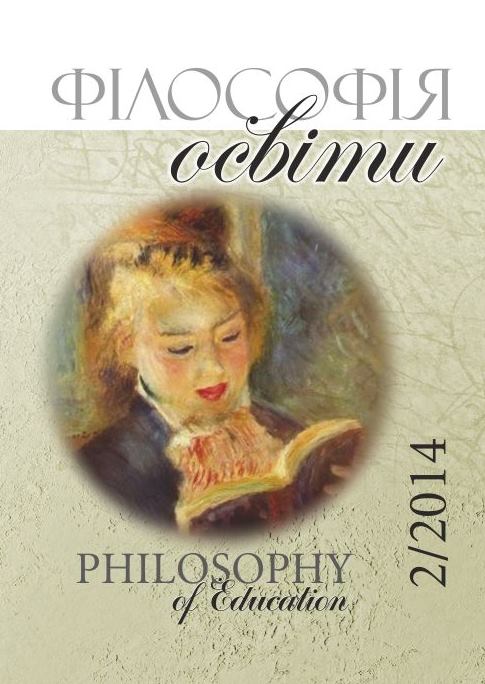Deliberative Models of Institutional Processes Modernization in the Global World, Educational, Political and Economic Transformations
Keywords:
deliberativity, global processes, transitive development, post-industriality, ideology, communication, critical theory of society, education, values, self-management, self-organizationAbstract
The specifics of strategies of post-industrial social development and transformation of social institutions, government management models in the context of globalization in today's industrialized systems are examined. The article deals with the dynamics and prospects of development of self-organizing processes in the systems of the society and governance; structure and the algorithm of functioning of direct democracy and civilian government models. The world outlook, educational, economic and political trends, perspectives
and forms of their further development are analyzed. When planning public future emphasis should be placed evenly on the analysis of the values and social institutions that will realize the real mechanisms of the practical construction of a new society. What is sometimes manifested in the quality of superficial phenomena actually characterizes the determined trends, which suggest not only other change perspectives, but also a revolution, which in its depth and width goes beyond expectations of traditional public theory. From the point of view of historical progress every new stage of society development differs from the past one in the fact that it creates new conditions for the material and spiritual integration of humanity as an expression of the basic trends of this social and historical development. Critical social theory and concept of deliberativity, which, in particular, developed in the framework of conceptual trends in contemporary neo-Marxism and post-Marxism, are used as methodology for analysis of phenomena of power and control, management models in the subsystems of society (economics, politics, the state). The critical analysis of society involves the identification of existing antagonistic, alienating factors that distort production and public communication. Critical social theory proceeds from the fact that the false needs largely dominate at the moment in the society (in all its spheres). These needs are imposed by certain social groups with the purpose of infringement of individual and group creative freedom. These requirements reinforce the relations of domination and subordination, producing operational performance, aggression, social conflicts, economic and social injustice. The stereotypes of needs, behavior and social relations are imposed, which contribute to fixing this relationship. The purpose of the analysis of deliberative philosophy and its critical theory for society and models of management (including management of education) is to determine the key features and mechanisms of a societal development. The author is referring the society, in which: (1) there are public and industrial relations independent of the people's will; (2) the domination of one people over another are repealed relationship coercion; (3) the control of the productive process and the functioning of the society must go on to the direct participants of public production. The author underlines the necessity to refuse a static understanding of freedom and progress. Human is free to act reasonably, but she/he is also free to make mistakes and correct them freely if they are amenable to correction.
Uncertainty, imperfection, the ability to make mistakes and relapse inhumanity are purely human traits. To author's mind, the freedom should be considered as one of the main driving force of social progress. Hence the moral need to check the social and state processes is very important, changing them and making them quite correctable. So far as the cultural, legal and political progress opens the way to social progress through prudent oriented activities, as it is marked in the paper, the existing social relations can be humanized.
Downloads
-
PDF (Українська)
Downloads: 237
Published
How to Cite
Issue
Section
License
- Authors who publish with this journal agree to the following terms:
- Authors retain copyright and grant the journal right of first publication;
- Authors are able to enter into separate, additional contractual arrangements for the non-exclusive distribution of the journal's published version of the work (e.g., post it to an institutional repository or publish it in a book), with an acknowledgement of its initial publication in this journal.





